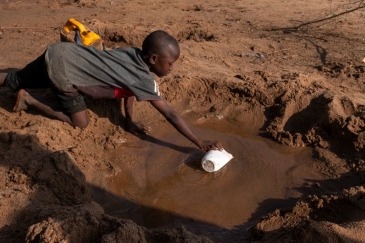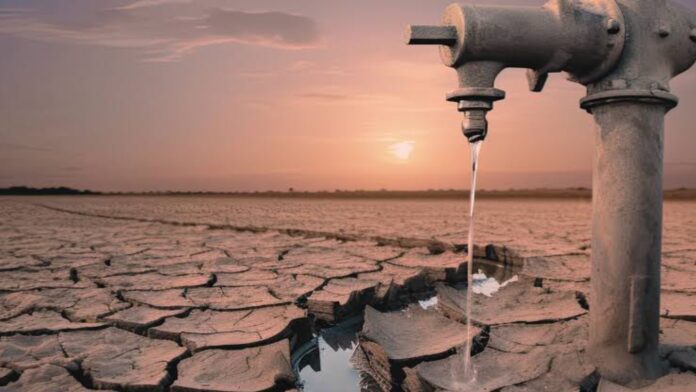Africa’s water crisis remains a growing concern, as all 54 countries on the continent are classified as ‘water-insecure,’ despite the availability of abundant natural water resources. The ongoing crisis, driven by factors such as population growth, climate change, and pollution, has led to rising conflicts and disputes over water since 2019. A new report on the State of Africa’s Environment has laid out the full extent of the problem, calling for urgent solutions.

The report, prepared by the Centre for Science and Environment (CSE), Down To Earth, and Media for Science, Environment, Health, and Agriculture (MESHA), highlights the failure of governments across Africa to properly manage and prioritize water resources. Released in Nairobi on September 16, the report examines water security, conflicts, and potential solutions like rainwater harvesting to address water poverty.
Highlights:
- All 54 African countries face severe water insecurity, driven by population growth, climate change, and pollution.
- Incidents of water-related violence have risen by 34% between 2022 and 2023, due to poor water management.
- Climate change and mismanagement are major contributors to Africa’s water woes, with 700 million people projected to be displaced by 2030.
- Rainwater harvesting could play a key role in combating water poverty and easing pressure on existing water systems.
Water-Related Conflicts on the Rise
The report highlights that incidents of violence and disputes over water have spiked by 34% between 2022 and 2023. The number of conflicts increased from 53 in 2022 to 71 in 2023. These violent outbreaks are tied to poor or nonexistent water management policies in various African nations. CSE Director General Sunita Narain expressed concern that African leaders are not doing enough to address the growing water crisis, leading to more disputes over the scarce resource.
The Impact of Climate Change
Climate change is further aggravating the continent’s water insecurity. The State of Africa’s Environment report cites findings from the Intergovernmental Panel on Climate Change (IPCC), noting that global warming is progressing faster in Africa than in many other regions of the world. As a result, 700 million Africans could be displaced by water stress by 2030, with food production also expected to fall by 6–14% by 2050.
Narain also noted that while climate change is intensifying Africa’s water crisis, mismanagement and lack of proper infrastructure are the primary culprits. “We are water-stressed not because it doesn’t rain, but because of the way we are managing it,” she remarked during the report’s release.
READ MORE: MOI’S GRANDSON RELEASED ON KSH 1M BOND, ENDING HIS 7-DAY SENTENCE
Solutions: Rainwater Harvesting
To combat the continent’s water challenges, the report advocates for rainwater harvesting as a crucial solution. With Africa’s abundant rainfall, capturing rainwater could ease the burden on strained water systems, especially in urban areas where water demand often exceeds supply. Rainwater harvesting would also involve local communities in water management and help offset the demand on government-run systems.
The report urges African governments to implement integrated land-water management policies and invest in affordable infrastructure to store and distribute water. “Rainwater harvesting can play a critical role in building resilience,” Narain emphasised, pointing to its potential to reduce urban water stress and recharge groundwater supplies.
As Africa faces growing water insecurity, the State of Africa’s Environment report serves as a wake-up call to leaders and communities alike. Without immediate action, the continent could see escalating conflicts, food shortages, and widespread displacement due to water scarcity.
